May 23, 2018 •
Third Request for FEC to Consider Rulemaking Concerning Foreign Interference in Elections
At the May 24 meeting of the Federal Election Commission, Vice Chair Ellen L. Weintraub resubmitted proposals for the commission to reconsider concerning whether to engage in a rulemaking to protect future U.S. elections from foreign interference. As stated in […]
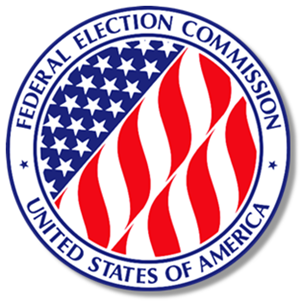 At the May 24 meeting of the Federal Election Commission, Vice Chair Ellen L. Weintraub resubmitted proposals for the commission to reconsider concerning whether to engage in a rulemaking to protect future U.S. elections from foreign interference.
At the May 24 meeting of the Federal Election Commission, Vice Chair Ellen L. Weintraub resubmitted proposals for the commission to reconsider concerning whether to engage in a rulemaking to protect future U.S. elections from foreign interference.
As stated in her May 17 memorandum to the commission, the proposals were initially brought in both September 2016 and June 2017. The impetus for her new request was a bipartisan joint statement released by Senators Richard Burr and Mark Warner, in which they both call for better efforts to combat foreign interference in federal elections.
This request to be considered at the commission’s meeting can be found here.
May 14, 2018 •
FEC Posts Examples of Proposed Internet Disclaimers
Ahead of its June 27 rulemaking hearing, the Federal Election Commission (FEC) has posted examples of internet disclaimers on its website. Currently, the FEC is accepting comments from the public concerning a Notice of Proposed Rulemaking on REG 2011-02 (Internet […]
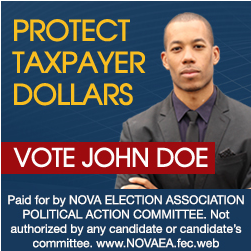 Ahead of its June 27 rulemaking hearing, the Federal Election Commission (FEC) has posted examples of internet disclaimers on its website. Currently, the FEC is accepting comments from the public concerning a Notice of Proposed Rulemaking on REG 2011-02 (Internet Communication Disclaimers).
Ahead of its June 27 rulemaking hearing, the Federal Election Commission (FEC) has posted examples of internet disclaimers on its website. Currently, the FEC is accepting comments from the public concerning a Notice of Proposed Rulemaking on REG 2011-02 (Internet Communication Disclaimers).
The proposals in the FEC notice deal with internet communications containing express advocacy, soliciting contributions, or internet communications made by political committees. The FEC says its goal “is to promulgate a rule that in its text and interpretation recognizes the paramount importance of providing the public with the clearest disclosure of the payor or sponsor of these public communications on the internet.”
The FEC notice also requests comments concerning a proposed change to the definition of “public communication.” The illustrative examples of internet disclaimers are available to view here.
May 11, 2018 •
FEC Approves Campaign Request to Use Funds for Childcare
The FEC voted unanimously 4-0 to allow New York Congressional candidate Liuba Grechen Shirley to spend her campaign funds on childcare. In her petition, she cited two cases where male candidates requested to use donor funds for limited childcare expenses. […]
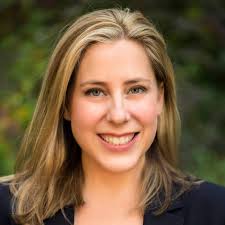 The FEC voted unanimously 4-0 to allow New York Congressional candidate Liuba Grechen Shirley to spend her campaign funds on childcare.
The FEC voted unanimously 4-0 to allow New York Congressional candidate Liuba Grechen Shirley to spend her campaign funds on childcare.
In her petition, she cited two cases where male candidates requested to use donor funds for limited childcare expenses.
The FEC ruled in an advisory opinion that Shirley’s expenses would not have existed if it weren’t for her run for office, and will therefore apply to any future candidates who may run for office.
Shirley said, “This groundbreaking decision will remove a major financial obstacle for working families and mothers at a time when women are increasingly considering elected office.”
Photo of Liuba Grechen Shirley via Facebook
April 20, 2018 •
FEC to Consider Asking for Analysis of Rules For When Quorum Not Met
On April 26, among the items the Federal Election Commission (FEC) is scheduled to consider will be a directive concerning FEC rules when the commission has fewer than four members. On April 19, Chair Caroline C. Hunter submitted a memo […]
 On April 26, among the items the Federal Election Commission (FEC) is scheduled to consider will be a directive concerning FEC rules when the commission has fewer than four members.
On April 26, among the items the Federal Election Commission (FEC) is scheduled to consider will be a directive concerning FEC rules when the commission has fewer than four members.
On April 19, Chair Caroline C. Hunter submitted a memo to the FEC stating her intent to ask the Office of the General Counsel to prepare a pubic memorandum analyzing the current laws and rules applicable when the commission has fewer than four members, the number needed for a quorum. Hunter also wants the commission to seek public comment on this issue after the Office of General Counsel’s memorandum is submitted to the FEC.
Additionally, the commission is scheduled to consider examples of internet communication disclaimers, which will be circulated at the meeting.
March 21, 2018 •
Federal Court Finds FEC Decision Concerning Outside Political Activity of Group During 2010 Elections Inconsistent with Governing Statutes
On March 20, a federal court found the Federal Election Commission (FEC) failed to interpret campaign finance laws correctly as applied to an outside group’s political activity during the 2010 federal elections. In 2012, Citizens for Responsibility and Ethics in […]
 On March 20, a federal court found the Federal Election Commission (FEC) failed to interpret campaign finance laws correctly as applied to an outside group’s political activity during the 2010 federal elections.
On March 20, a federal court found the Federal Election Commission (FEC) failed to interpret campaign finance laws correctly as applied to an outside group’s political activity during the 2010 federal elections.
In 2012, Citizens for Responsibility and Ethics in Washington (CREW) had brought a complaint to the FEC alleging American Action Network (AAN), an outside nonprofit entity that ran nearly $18 million in television advertisements just before the 2010 federal midterm elections, was a “political committee” and subject to federal disclosure requirements.
A majority of the commissioners did not find “reason to believe” that AAN violated any law and the complaint was dismissed. Crew appealed the FEC decision to the United States District Court for The District of Columbia.
Yesterday, U.S. District Judge Christopher R. Cooper found the FEC’s analysis used to determine whether AAN was a political committee “was inconsistent with the governing statutes,” granted summary judgment in favor of CREW, and remanded the matter back to FEC to address CREW’s initial complaint again.
March 19, 2018 •
FEC Now Located at 1050 First Street NE
Effective today, the office headquarters of the Federal Election Commission (FEC) are located at 1050 First Street, NE, Washington, D.C. The FEC also begins receiving all mail at this new address today. The offices of the FEC had been located […]
 Effective today, the office headquarters of the Federal Election Commission (FEC) are located at 1050 First Street, NE, Washington, D.C.
Effective today, the office headquarters of the Federal Election Commission (FEC) are located at 1050 First Street, NE, Washington, D.C.
The FEC also begins receiving all mail at this new address today.
The offices of the FEC had been located at 999 E Street since 1985.
On March 14, the Federal Election Commission (FEC) approved a draft notice for rules concerning internet communication disclaimers. Because the rules were last revised in 2006, the FEC is interested in public input about the application of those rules “in […]
 On March 14, the Federal Election Commission (FEC) approved a draft notice for rules concerning internet communication disclaimers. Because the rules were last revised in 2006, the FEC is interested in public input about the application of those rules “in light of technological advances” since then.
On March 14, the Federal Election Commission (FEC) approved a draft notice for rules concerning internet communication disclaimers. Because the rules were last revised in 2006, the FEC is interested in public input about the application of those rules “in light of technological advances” since then.
The FEC document, Reg 2011-02: Draft Notice of Proposed Rulemaking on Internet Disclaimers and Definition of “Public Communication,” states the FEC is requesting comments about two alternative proposals to amend its regulations concerning disclaimers on public communications on the internet. The proposals in the FEC notice deal with internet communications containing express advocacy, soliciting contributions, or internet communications made by political committees.
The FEC says its goal “is to promulgate a rule that in its text and interpretation recognizes the paramount importance of providing the public with the clearest disclosure of the payor or sponsor of these public communications on the internet.” The FEC notice also requests comments concerning a proposed change to the definition of “public communication.”
Comments must be received on or before 60 days after date of publication in the notice in the Federal Register, with a public hearing to follow on June 27, 2018.
February 26, 2018 •
FEC Moving to New Location in March
In March, the Federal Election Commission (FEC) begins the process of moving from its current location in Washington, D.C. at 999 E Street, NW, to its new location at 1050 First Street, NE. On March 19, the FEC will begin […]
 In March, the Federal Election Commission (FEC) begins the process of moving from its current location in Washington, D.C. at 999 E Street, NW, to its new location at 1050 First Street, NE.
In March, the Federal Election Commission (FEC) begins the process of moving from its current location in Washington, D.C. at 999 E Street, NW, to its new location at 1050 First Street, NE.
On March 19, the FEC will begin receiving mail at the new address, according the commission’s weekly digest published on its website on February 23. The FEC was originally scheduled to begin receiving mail at its new address on March 5, 2018, as published in the in the Federal Register on December 26.
The offices of the FEC have been located at 999 E Street since 1985.
February 12, 2018 •
Federal Lobbyist Bundling Disclosure Threshold Increased to $18,200
Today, the Federal Election Commission (FEC) published its price index adjustments for expenditure limitations and the federal lobbyist bundling disclosure threshold. The lobbyist bundling disclosure threshold has increased for 2018 from $17,900 to $18,200. This threshold amount is adjusted annually. […]
 Today, the Federal Election Commission (FEC) published its price index adjustments for expenditure limitations and the federal lobbyist bundling disclosure threshold.
Today, the Federal Election Commission (FEC) published its price index adjustments for expenditure limitations and the federal lobbyist bundling disclosure threshold.
The lobbyist bundling disclosure threshold has increased for 2018 from $17,900 to $18,200. This threshold amount is adjusted annually.
Federal law requires authorized committees of federal candidates, leadership political action committees (PACs), and political party committees to disclose contributions bundled by lobbyists and lobbyists’ PACs.
Additionally, the FEC published its adjusted Coordinated Party Expenditure Limits for political parties for 2018.
February 9, 2018 •
Commissioner Goodman Resigns from FEC
On February 7, Commissioner Lee E. Goodman submitted his resignation from the Federal Election Commission (FEC) to the White House. The effective date of his resignation is February 16. Goodman, who joined the FEC in 2013 and was chairman in […]
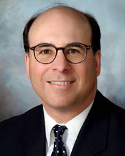 On February 7, Commissioner Lee E. Goodman submitted his resignation from the Federal Election Commission (FEC) to the White House.
On February 7, Commissioner Lee E. Goodman submitted his resignation from the Federal Election Commission (FEC) to the White House.
The effective date of his resignation is February 16.
Goodman, who joined the FEC in 2013 and was chairman in 2014, intends to practice law with the law firm Wiley Rein LLP in Washington, DC, according to an FEC press release.
February 6, 2018 •
Comment Period for FEC Rulemaking Proposal Concerning Multistate Independent Expenditures and Electioneering Communications Ends March 30
On March 30, the public comment period will end for proposed Federal Election Commission (FEC) rulemaking concerning independent expenditures by candidates and reporting of independent expenditures and electioneering communications relating to presidential primary elections. The covered independent expenditures and electioneering […]
 On March 30, the public comment period will end for proposed Federal Election Commission (FEC) rulemaking concerning independent expenditures by candidates and reporting of independent expenditures and electioneering communications relating to presidential primary elections.
On March 30, the public comment period will end for proposed Federal Election Commission (FEC) rulemaking concerning independent expenditures by candidates and reporting of independent expenditures and electioneering communications relating to presidential primary elections.
The covered independent expenditures and electioneering communications are specific to those publicly distributed in multiple states and not referring to any particular state’s primary election.
On January 29, the announcement of these proposed rulemakings was published in the Federal Register. Comments may be submitted directly to the FEC’s website.
December 18, 2017 •
FEC Elects Caroline Hunter as Chairwoman
On December 14, the Federal Election Commission (FEC) elected Caroline C. Hunter as its chairwoman for 2018. Hunter replaces Steven T. Walther, who was appointed to the commission in 2006. The chairmanship is a rotating, one-year position. Ellen L. Weintraub […]
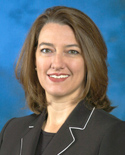 On December 14, the Federal Election Commission (FEC) elected Caroline C. Hunter as its chairwoman for 2018. Hunter replaces Steven T. Walther, who was appointed to the commission in 2006.
On December 14, the Federal Election Commission (FEC) elected Caroline C. Hunter as its chairwoman for 2018. Hunter replaces Steven T. Walther, who was appointed to the commission in 2006.
The chairmanship is a rotating, one-year position. Ellen L. Weintraub was elected as Vice Chair for next year.
Additionally, at the same regularly held open meeting, the FEC unanimously approved 12 legislative recommendations be submitted for consideration to the U.S. Congress.
The recommendations concern subject matters such as electronically filing senate reports, increasing and indexing for inflation registration and reporting thresholds, and prohibiting fraudulent practices of PACs.
October 23, 2017 •
FEC Fines Federal Contractor for Contribution to Super PAC
Contributions by federal contractors to federal independent expenditure-only political action committees, also known as super PACs, may violate the federal pay-to-play prohibition. On September 25, 2017, the Federal Election Commission (FEC) entered into a Conciliation Agreement with a federal contractor […]
 Contributions by federal contractors to federal independent expenditure-only political action committees, also known as super PACs, may violate the federal pay-to-play prohibition.
Contributions by federal contractors to federal independent expenditure-only political action committees, also known as super PACs, may violate the federal pay-to-play prohibition.
On September 25, 2017, the Federal Election Commission (FEC) entered into a Conciliation Agreement with a federal contractor after finding the contractor had violated pay-to-play prohibitions by making contributions to a federal independent expenditure-only political action committee.
The FEC fined the contractor, Suffolk Construction Company, $34,000 for making two $100,000 contributions in 2015 to Priorities USA Action, a super PAC supporting then presidential candidate Hillary Clinton. Because the matter was resolved by agreement between the FEC and the contractor, there was no challenge made to the FEC’s fine.
September 14, 2017 •
President Nominates Trey Trainor for FEC Commissioner
On September 12, President Donald J. Trump nominated Trey Trainor to serve as a commissioner on the Federal Election Commission (FEC). Trainor is a lawyer licensed in Texas who specializes in election law, campaign finance, and ethics. Trainor previously served […]
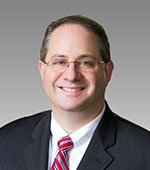 On September 12, President Donald J. Trump nominated Trey Trainor to serve as a commissioner on the Federal Election Commission (FEC). Trainor is a lawyer licensed in Texas who specializes in election law, campaign finance, and ethics. Trainor previously served in the president’s administration as a Special Assistant to the Secretary of Defense, James Mattis, in the Department of Defense, Office of General Counsel.
On September 12, President Donald J. Trump nominated Trey Trainor to serve as a commissioner on the Federal Election Commission (FEC). Trainor is a lawyer licensed in Texas who specializes in election law, campaign finance, and ethics. Trainor previously served in the president’s administration as a Special Assistant to the Secretary of Defense, James Mattis, in the Department of Defense, Office of General Counsel.
Last week it was announced Commissioner Matthew Spencer Petersen would be stepping down after being nominated by the president to serve as a District Judge on the U.S. District Court for the District of Columbia.
With the appointment of Trainor, and with Petersen’s absence, there will be three registered members of the Republican Party, one registered member of the Democratic Party, and one Independent, Chairman Steven T. Walther. One seat still remains vacant. The FEC requires at least four commissioners to agree for any official action.
To become a commissioner, Trainor must now be confirmed by the U.S. Senate.
State and Federal Communications, Inc. provides research and consulting services for government relations professionals on lobbying laws, procurement lobbying laws, political contribution laws in the United States and Canada. Learn more by visiting stateandfed.com.


